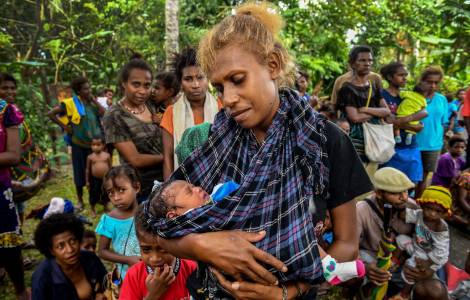
Port Moresby (Agenzia Fides) - The crisis in the health sector in Papua New Guinea in recent months is worsening. Nurses and doctors from Catholic Health Services and Healthcare Facilities have reduced or stopped work completely since July 3 because of the lack of government subsidies and salaries since the beginning of 2020. "The government's financial difficulties in these pandemic times and changing economic policies and foreign investment can be understood given the pandemic period. However, priorities must be established", writes Fr. Giorgio Licini, PIME, general secretary of the PNGSI Bishops' Conference, in a note sent to Agenzia Fides.
"The problem here - underlines Fr. Licini - are health services in rural areas. The Church, as in similar cases in the past, is able to deploy emergency resources, however, without the salaries paid by the government, health services would be sufficient for less than a year. The government must be careful not to undermine its Christian inspiration by leaving out remote areas. In a poorer post-COVID-19 world, there will be no room for personal greed; or human arrogance will push millions back to the margins and in conditions of hunger, disease and death".
The health services of the different Christian denominations in PNG cover about 50% of the total national health sector. The fact that they are mainly found in rural areas, where there is hardly any government infrastructure, indicates how important these are to millions of disadvantaged citizens in the country.
The Secretary of Bishops also points out that Papua New Guinea is a rare example of a country that refrains from investing in armaments. "The task of ensuring sufficient financial resources for the basic services required, for the state apparatus and for infrastructure improvements for a growing population is daunting", he explains. At the end of the day, each person and each country is largely responsible for their fate. What is essential is the integrity and commitment of the leadership, which is immediately reflected in the treatment reserved for the marginalized and the poor". (AP) (Agenzia Fides, 7/8/2020)